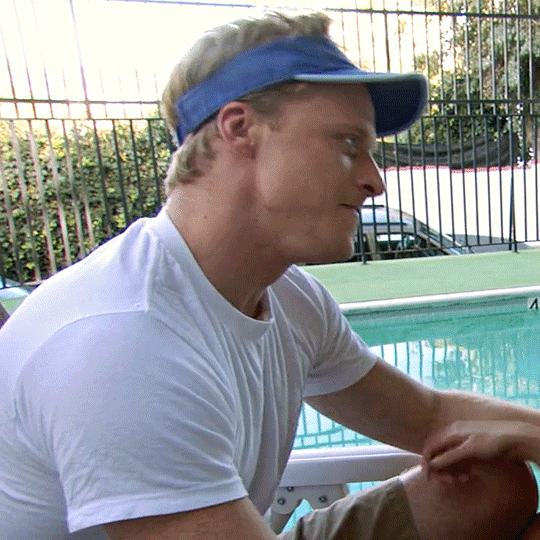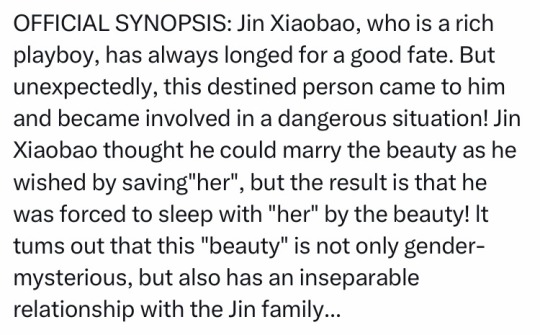#meet market
Explore tagged Tumblr posts
Text



ALAN TUDYK as Danny | MEET MARKET (2004)
#alan tudyk#filmedit#filmgifs#moviegifs#movieedit#tvnfilms#if the people who made this film didn't care about the lighting inconsistency in between shots then neither will I#meet market#at*#shomangaka: gifs
57 notes
·
View notes
Text























<kicks down door> I bring thee The heart killers text post part 8 ft. ep 8
I have now made more than 100 of these text post thingies... I feel like someone should actually stop me at this point, this can't be good for me
Part 1, 2, 3, 4, 5, 6, 7, 9
+bonus

#I did go into making these thinking I was gonna make less than last time#but no#here I am#but I'm having fun so I will keep making these until I don't think it's fun anymore#this may not be my fav ep but I did laugh to death so you know#anyway I hope market lady and motel lady get invited to the FadelStyle wedding and have a meet cute#and then they fall in love and have an old lady yuri wedding and invite FadelStyle and everyone lives happily ever after#that's my dream fanfic scenario#the heart killers#thk#fadelstyle#kantbison#ro makes thk hahas
382 notes
·
View notes
Text
Producer of upcoming uncensored wuxia bl Meet You At The Blossom shared a message that explains why they don't have large marketing (translation by twitter user @ xiaoqiaoo_)



#meet you at the blossom#myatbsource#花开有时颓靡无声#chinese bl#upcoming bl#mine#I LOVE THESE PEOPLE#i will do all the marketing i can for you on tumblr do not worry
315 notes
·
View notes
Text

hes so easy to draw
#myart#animorphs#aximili#andalite#andalites r second nature at this point#esp now that ive settled on a happy medium between weird little alien and blue anime girl from daft punk music video#no chin bc they don't have jaws and big head because they have to fit that extra occipital lobe somewhere#distinctly inhuman but cute & marketable & safe#to serve as a direct contrast to the arrogance & apathy & various genuinely awful shit we get from the andalites we meet
160 notes
·
View notes
Text
Defense (of the internet) (from billionaires) in depth

Picks and Shovels is a new, standalone technothriller starring Marty Hench, my two-fisted, hard-fighting, tech-scam-busting forensic accountant. You can pre-order it on my latest Kickstarter, which features a brilliant audiobook read by Wil Wheaton.

The only way to truly billionaire-proof the internet is to a) abolish billionaires and b) abolish the system that allows people to become billionaires. Short of that, any levees we build will need constant tending, reinforcement, and re-evaluation.
That's normal. No security measure (including billionaire-proofing the internet) is a "set and forget" affair. Any time you want something and someone else wants the opposite, you are stuck in an endless game of attack and defense. The measures that block your adversary today will only work until your adversary changes tactics to circumvent your defenses.
For example, mining all the links on the internet to find non-spam sites worked brilliantly for Google, because until Pagerank, there were zero reasons for spammers to get links to point to their sites. Once Google became the dominant way of finding things on the internet, spammers invented the linkfarm. This principle can be summed up as "Show me a ten-foot wall and I'll show you an eleven-foot ladder."
Security designers address this with something called "defense in depth": that's a series of overlapping defenses that are meant to correct for one another's weaknesses. Your bank might use a password, a 2FA code, and – for extremely high-stakes transactions – a series of biographical questions posed by a human customer service over a telephone line.
I've written extensively about defending a new, good internet from billionaire enshittifiers. For example, in this post, I described how Bluesky could be made enshittification-resistant with the use of "Ulysses Pacts" – self-imposed, binding restrictions on enshittification:
https://pluralistic.net/2024/11/02/ulysses-pact/#tie-yourself-to-a-federated-mast
A classic example of a Ulysses Pact is "throwing away the Oreos when you go on a diet." Now, it doesn't take a lot of work to devise a countermeasure your future, Oreo-craving self can take to defeat this measure: just drive to the grocery store and buy more Oreos. This even works at 2AM, provided you live within driving distance of an all-night grocer.
That doesn't mean you shouldn't throw away those Oreos. Depending on how strong your Oreo craving is, even a little friction can help you resist the temptation to ruin your diet. We often do bad things because of momentary impulses that fade quickly, and simply airgapping the connection between thought and deed works surprisingly well in many instances.
This is why places with fewer guns have fewer suicides of all kinds: there are plenty of ways to kill yourself, but none are quite so quick and reliable as a gun. People in the grips of a suicidal impulse who don't have guns have more chances to let the impulse pass (this is also why gun control leads to fewer all-cause homicides). So just because a measure is imperfect, that doesn't make it worthless.
If you're trying to give up drinking, you throw away all your booze, but you also go to meetings, and you get a sponsor who can help you out with a 2AM phone call. You might even put a breathalyzer on your car's ignition system. None of these are impossible to defeat (you can get an Uber to the liquor store, after all), but they all create friction between the thing you want, and the thing your adversary (your addiction) is trying to get. They strengthen the hand of you as defender of the sober status quo, against the attacker who wants you to relapse.
Critically, all these defensive measures also buy you space and time that you can use to organize and deploy more defenses. Maybe the long Uber ride to the liquor store gives you enough time to think about your actions so you call your sponsor from the parking lot. Defense is useful even when it only slows your adversary, rather than stopping your adversary in their tracks.
Scaling up from personal defense to societal-scale security considerations, it's useful to think of this as a battle with four fronts: code (what is technically im/possible?), law (what is il/legal?), norms (what is socially un/acceptable?) and markets (what is un/profitable?). This framework was first raised a quarter-century ago, in Larry Lessig's Code and Other Laws of Cyberspace:
https://commons.wikimedia.org/wiki/File:Code_And_Other_Laws_of_Cyberspace_Version_2_0.pdf
Lessig laid out these four forces as four angles of attack that challengers to the status quo should plan their strategy around. If you want to liberalize copyright, you can try norms (the "Free Mickey" campaign), laws (the Eldred v. Ashcroft Supreme Court case), code (machine-readable Creative Commons licenses) and markets (open access/free software businesses). Each one of these helps the other – for example, if lots of people believe in copyright reform (norms), more of them will back a Humble Bundle for open access materials (markets), and more lawmakers will be interested in changing copyright statutes (law), and more hackers will see reason to do cool things with CC licenses, like search engines (code).
But the four forces aren't just for attackers seeking to disrupt the status quo – they're just as important for defenders looking to create and sustain a new status quo. Figuring out how to "lock a system open" is very different from figuring out how to "force a system open." But they're both campaigns waged with code, law, norms and markets.
We're living through a key moment in enshittification history. Millions of people have become dissatisfied with legacy social media companies run by despicable, fascism-friendly billionaires like Elon Musk and Mark Zuckerberg and are ready to leave, despite the costs (losing contact with friends who stay behind). While many of them are moving to group chats and private Discord servers,tens of millions have moved to new social media platforms that advertise (though they don't necessarily deliver) decentralization: Mastodon (and the fediverse) and Bluesky (and the atmosphere).
Decentralization is itself a defensive countermeasure (code). When a service has diffuse power, it's harder for any one person to take it over. Federation adds another defensive layer, because users who don't like the way one server is run can move to another server, with varying degrees of data- and identity-portability. That makes it harder for server owners to squeeze users to make money (markets), and gives them an out if server owners try it anyway.
Federation with decentralization is my favorite anti-enshittification defense. It's powerful as hell. It's the main reason I endorse Free Our Feeds, an effort to (among other things) build more Bluesky servers to decrease the centralization and give users dissatisfied with Bluesky management an alternative:
https://pluralistic.net/2025/01/20/capitalist-unrealism/#praxis
That said, decentralization and federation are not perfect, set-and-forget defenses. Take email – the oldest, most successful federated system of them all. Email is nominally decentralized, but most email traffic goes through a handful of extremely large servers run by a cartel of companies (Google, Apple, Microsoft, and a few ISPs). These companies collude (or, more charitably, coordinate) to block email from non-cartel companies, in the name of fighting spam. This makes running your own mail server so hard that it is nearly impossible (that is, if you care about people actually receiving the email you send them):
https://pluralistic.net/2021/10/10/dead-letters/
What's interesting about enshittified email is that it didn't start with corporate takeover: it started with volunteer-maintained blocklists of untrustworthy servers that most email operators subscribed to, defederating from any server that appeared on the list. These blocklists of bad servers were opaque (often, their maintainers would operate anonymously, citing the threat of retaliation from criminal scammers whose servers appeared on the list). They had little or no appeal process, and few or no objective criteria for inclusion (you could be blocklisted for how your email server was configured, even if no one was using it to send spam). All of this set up the conditions to favor large email servers, and also had the effect of immunizing these large servers from appearing on blocklists. I mean, once three quarters of the internet is on Gmail, no one is going to block email from Gmail, even if a ton of spam is sent using its servers.
The lesson of email doesn't mean email is bad, nor does it mean decentralization and federation are useless. It doesn't even mean that blocklists of bad servers are evil. It just means that federation and decentralization are imperfect and insufficient defenses against enshittification, and that blocklists are useful, but very dangerous. It means that we should strive to keep our systems federated and decentralized, and watch our blocklists very carefully, and not rely on any of this as the only defense against enshittification.
Likewise, both Mastodon and Bluesky are built on free/open code and standards. That means that anyone can fork them, fix them or mod them. What's more, the licenses involved are irrevocable, making them very effective Ulysses Pacts. No one – not a CEO, not a VC investor, not a court or a blackmailer – can order someone to make their GPL code proprietary. The license is perpetual and irrevocable, and that's that.
Free/open licenses are excellent Ulysses Pacts and great code-related defenses against enshittification, but they, too, are imperfect and insufficient. Google, Facebook, Amazon, Apple and Microsoft have all figured out how to enshittify services that are built on free/open code:
https://mako.cc/copyrighteous/libreplanet-2018-keynote
And then there are all the companies that use free/open code and defeat the freedom and openness by simply violating the license, on the grounds that a decentralized, federated development community can't figure out who has standing to sue, and also can't afford to pay for the lawyers to do so:
https://sfconservancy.org/news/2022/may/16/vizio-remand-win/
That's not to say that code-based antienshittification measures are pointless – only to say that they need other measures to backstop them, as defense in depth. Let's talk about law, then. Both Mastodon and Bluesky are governed by legal entities that are, nominally, organized by charters that oblige them to eschew enshittification and be responsive to their users (Bluesky is a B-corp, Mastodon's code is overseen by a US nonprofit).
These structures are very important. I've been a volunteer board member for several co-ops and nonprofits (I was even once a volunteer for a nonprofit co-op!) and I'm familiar with the role that good governance can play in defending a project from internal and external pressures to betray its mission. That means I'm also familiar with the limits of these governance measures.
Take nonprofits: nominally, nonprofits are legally bound to serve their charitable purpose, and technically, stakeholders have legal recourse if they stray from this. But you don't have to look far to find nonprofits that have violated their charter and gotten away with it. Take the Nature Conservancy, which has become a key player in the market for fake "carbon offsets" that are used to justify everything from fossil fuel extraction to SUV manufacture:
https://pluralistic.net/2020/12/12/fairy-use-tale/#greenwashing
Or think of ISOC, who get tens of millions of dollars in free money every year from their stewardship of the .ORG registry, but who decided to hand over control of the nonprofits' TLD of choice to a shadowy cabal of hedge-fund billionaires:
https://www.eff.org/deeplinks/2020/12/how-we-saved-org-2020-review
Co-ops, too, are powerful but wildly imperfect. REI is a member co-op that does lots of great things…and also busts unions:
https://prismreports.org/2024/07/17/rei-workers-unionizing-fighting-for-agreemment/
But REI is a paragon of social virtue compared to its Canadian equivalent, Mountain Equipment Coop, whose board was taken over by corrupt assholes who then sold the whole thing to a US private equity fund and change the name to "MEC":
https://pluralistic.net/2020/09/16/spike-lee-joint/#casse-le-mec
B-corps are far from perfect, too: while they are nominally required to serve a positive social purpose, in practice, they can violate that purpose with impunity, whether that through greenwashing:
https://www.bbc.com/worklife/article/20240202-has-b-corp-certification-turned-into-corporate-greenwashing
Or Kickstarter insiders taking a $100m bribe to help Andreesen-Horowitz do a crypto pump-and-dump:
https://fortune.com/crypto/2024/03/11/kickstarter-blockchain-a16z-crypto-secret-investment-chris-dixon/
None of this is to claim that B-corps, co-ops, and nonprofits are useless. Maybe we should just give up on organization altogether and have some kind of adhocracy? If you're thinking this will help, then you need to read Jo Freeman's "The Tyranny of Structurelessness" and learn how a "leaderless" group is actually led by its least scrupulous, most Machiavellian schemers:
https://www.jofreeman.com/joreen/tyranny.htm
At this point, you might be mentally designing a new corporate structure, one that's designed to correct for both the tyranny of structurelessness and the brittleness of co-ops, nonprofits and B-corps. Please don't do this. Rolling your own corporate structure is like rolling your own cryptography or your own free software license. It always ends in tears:
https://www.reuters.com/technology/artificial-intelligence/openai-remove-non-profit-control-give-sam-altman-equity-sources-say-2024-09-25/
I like co-ops, nonprofits and B-corps. They're powerful – but insufficient – weapons against enshittification. They need to be backstopped by other measures, like norms. Normative measures are very powerful! Of course, mass revolts of angry users don't always keep companies from enshittifying:
https://www.theguardian.com/technology/2023/dec/30/reddit-moderator-protest-communities-social-media
But sometimes they do. The C-suite of Unity was shown the door after enshittifying their flagship product:
https://www.theverge.com/2023/10/10/23911338/unity-ceo-steps-down-developers-react
As was the enshittifying CEO of Sonos:
https://www.theverge.com/2025/1/13/24342179/sonos-ceo-patrick-spence-resignation-reason-app
And of course, these defensive measures reinforce one another. The public outcry against the .ORG selloff (norms) led to California's Attorney General stepping in (law), and after that, we more-or-less romped to victory:
https://www.theregister.com/2020/04/17/icann_california_org_sale_delay/
Markets are the final antienshittificatory force. If a social network is designed to be surveillance-resistant, it will be (very) hard to implement behavioral surveillance advertising. If a network is designed to support a many clients, it will be easy to implement an ad-blocker. Both factors make advertising-based businesses very unattractive to individual server operators, spammers, and VCs who back companies that operate elements of a federated server.
Same goes for systems that allow users to control the recommendations and other algorithmic aspects of their feeds (including switching these off altogether). The fact that Tiktok's users overwhelmingly use an algorithmic feed that they have no way to control or even understand is an anti-Ulysses Pact, an irresistible temptation for Tiktok to enshittify itself:
https://pluralistic.net/2023/01/21/potemkin-ai/#hey-guys
By contrast, it's much harder to pull those shenanigans with services that technologically devolve control over recommendations (code), making it less profitable to even try to attempt this (markets). And of course, if users refuse to tolerate this kind of thing (norms) and can hop to other servers (code), then any system that pulls that nonsense will lose lots of users and go broke (markets).
This defense-in-depth approach to decentralized social media pushes us to analyze both Mastodon and Bluesky through a tactical lens – to identify the weak parts in the defenses of each and shore them up.
Take Free Our Feeds and its attempt to stand up more Bluesky servers. This addresses one of the serious technical deficiencies in Bluesky (the lack of federation), and if lots of Bluesky users try it out, it will normalize the idea that Bluesky is a constellation of independently managed servers (norms). It also creates Bluesky alternatives with radically different commercial imperatives (markets), because the main Bluesky server is backed by venture capitalists, who are notorious for their enshittifying impulses.
But security isn't static – a tactic that works today won't work tomorrow if your adversary can figure out a way around it. Bluesky is a B-corp with an excellent board with some names I have profound trust for, but B-corps can abandon their public benefit purpose, and boards can be fired (and also even people you trust can talk themselves into doing stupid and wicked things, see .ORG).
If millions of Bluesky users flock to a rival service, one run by a nonprofit (markets), Bluesky's investors might be tempted to sever the link between Bluesky and that new server (code). That's what Facebook and Apple did to XMPP, an interoperable, federated messaging system that used to connect Apple users, Facebook users, and users of many other servers. They did this for commercial reasons (markets), to trap and lock in their users (code), and they got away with it because not enough users were outraged by this (norms) that they could get away with it.
When Bluesky's VCs fire the CEO, kick people like Mike Masnick off its board, and then defederate from Free Our Feeds' server, how do we make that more like Sonos or Unity (where the corporation capitulated to its users), and not like Reddit (where the user revolt was crushed)?
With social media, it's a numbers game. Social media grows by network effects: the more users there are in a system, the more valuable it is. It's not merely imperative to create alternative Bluesky servers, it's imperative to make them populous enough that cutting them off from the first Bluesky server will inflict more pain on the company than it inflicts on those other users. That's not a guarantee that Bluesky's future, enshittification-bent management won't go ahead and do it anyway, but it does increase the chances that if they press on, their users will take the hit to defect to free/open servers.
Bluesky has other problems besides its centralization, of course. The reason Bluesky is so centralized is that it's really expensive to run an alternative Bluesky server that provides a home for users who have left the main server (a "relay" in Bluesky-ese). Partly this is down to tooling: because no one has done it, Free Our Feeds will have to invent a lot of stuff to get that server up and running, but people who come later will benefit from whatever Free Our Feeds develops along the way.
But mostly, this isn't a tooling problem – it's an architecture problem. The way that Bluesky is structured demands a lot more of relays than Mastodon demands of "instances" (a loose Fediverse analog to relays):
https://www.techdirt.com/2025/01/21/the-technological-poison-pill-how-atprotocol-encourages-competition-resists-evil-billionaires-lock-in-enshittification/#comment-4253477
This is a code problem, and it's a hard one, but it's not insurmountable. The history of networked tools is the history of developers figuring out how to break apart large, monolithic, expensive services in cheaper, smaller, easier to develop. In other words, our defense in depth of Bluesky militates for more than one project – not just a "Free Our Feeds" but also a software development project to make it easier for anyone to free those feeds.
Which raises some important questions, the biggest being "Why bother?" After all, there's already a perfectly good Fediverse that could sure use the money and effort that Free Our Feeds is proposing to put into Bluesky. My main answer here is that the point of disenshittification is an enshittification-free internet, not a better Mastodon:
https://pluralistic.net/2025/01/20/capitalist-unrealism/#praxis
We want to set Bluesky users free because the problem with Bluesky isn't its users, it's the fact that there's no fire-exits those users can avail themselves of if Bluesky's VCs set it on fire:
https://pluralistic.net/2024/12/14/fire-exits/#graceful-failure-modes
But there's another good reason to do this, one that involves people who have no interest in using Bluesky: even if you don't want to use a better Bluesky, you likely have very good reasons to reach Bluesky users. Maybe you want them to help you organize against enshittification! Or maybe you just want to operate a real-world venue where people can gather and have a great time and support performers, and right now you're stuck advertising on Facebook and Instagram, and you don't want to end up being forced to use an enshittified, fire-exit-free Bluesky in the future:
https://www.dnalounge.com/backstage/log/2025/01/13.html
Of course, there's plenty of reasons to want to make Mastodon better. Many of Mastodon's features are absurdly primitive – the lack of threading support and quote-boosting sucks, and the supposedly opt-in system-wide search doesn't work, even if you opt in. Masto could sure use some of the money that Free Our Feeds is asking for to spruce up Bluesky.
This is true, but also irrelevant. Mastodon is stuck at around a million active users, while Bluesky has twenty times that amount. Crowdfunding a couple dollars per user to pursue software development is a reasonable goal, but raising twenty times that much is a lot harder:
https://mastodon-analytics.com/
The money being raised for Free Our Feeds isn't money that had been earmarked for Mastodon development, nor will abandoning Free Our Feeds redirect those funds to Mastodon development.
Which isn't to say that we shouldn't chip in to fund Mastodon development. I donated to the Kickstarter for Pixelfed, a Fediverse Insta replacement that has Meta so scared that they'll suspend your account if you even mention it:
https://www.kickstarter.com/projects/pixelfed/pixelfed-foundation-2024-real-ethical-social-networks
Adding Insta-like features to Mastodon is great. Fixing search, quoting, and threading would be great, too. We probably need some kind of governance efforts to keep volunteer-run, good faith defederation blocklists from exhibiting the same dynamics that email went through during the spam wars. There's some Bluesky features I'd love to see on Mastodon, like composable moderation and user-controlled, user-tunable recommendations. We also probably need some kind of adversarial press that closely monitors the governance structure for the Mastodon codebase and reports on process in standardization (I cannot overstate how much fuckery can take place within standards bodies, under cover of a nigh-impermeable shield of boringness).
Breaking Bluesky open is a priority. Keeping Mastodon open is a priority. But neither of these are goals unto themselves. The point is to set people free, not set technology free. Willie Sutton robbed banks because "that's where the money is." Right now, I'm interested in anti-enshittification measures for Bluesky because "that's where the people are."

Check out my Kickstarter to pre-order copies of my next novel, Picks and Shovels!

If you'd like an essay-formatted version of this post to read or share, here's a link to it on pluralistic.net, my surveillance-free, ad-free, tracker-free blog:
https://pluralistic.net/2025/01/23/defense-in-depth/#self-marginalization

Image: Mike Baird (modified) https://flickr.com/photos/mikebaird/2354116406
CC BY 2.0 https://creativecommons.org/licenses/by/2.0/
#pluralistic#mec#mountain equipment coop#public benefit corporations#openai#xmpp#open web#dotorg#isoc#icann#code law norms markets#code#law#norms#markets#adversarial interoperability#ulysses pacts#meeting people where they are#rei#union busting#circular firing squads#atproto#bluesky#bsky#activitypub#mastodon
137 notes
·
View notes
Text
i think shouto and touya are both the kind of guys who love watching you sleep. and there's definitely something at least kind of sweet about it sometimes, but there is undeniably also something incredibly unnerving abt waking up and having them openly staring at you
#plus half the time touya wasn't even there when you went to sleep#and shouto has this weird habit of standing OVER you while he does it (but he also does it while he lays next to you obviously)#just imagine meeting the Todoroki Blank Stare™ in the dark like a jumpscare#i'm in the market atm for some dick from a guy who is Peculiar and these 2 are really doin' it for me#tw yandere#(just in case!!!!)#bnha hcs
490 notes
·
View notes
Text



Inktober prompt: Horizon(tal)
(if I do a print of this one I'll update here)
95 notes
·
View notes
Text
big publisher: we think your work has broad appeal, we don’t only want to market it to LGBT readers
me, standing next to a home-made 40 foot sign that reads "YOU DON’T HAVE TO BE QUEER TO READ MY BOOKS, BUT IT HELPS 😘": yeah I think we’re on the same page here
#this is not about any of my current publishers lol#but i havent had the marketing meetings yet so who knows. it may be a prophecy
232 notes
·
View notes
Text
it's so hard to take criticisms of veilguard at face value in regard to 'straying from the concept art'. like. i work in the marketing department for a state university. i report to our director of marketing and team up with our artists and project manager everyday. our brainstorming sessions are ridiculous. they're incredibly chaotic. i throw out ideas left and right and most of them are stupid. our project manager gets overexcited and chimes in. then our social media manager responds at the actual speed of light. our artist fights the bodily urge to flee from the fucking room. none of it makes sense. we have another brainstorming session, and another after that. we start to organize the ideas three weeks later. our director daydreams about chugging vodka during every meeting. eventually our ideas make it onto our project management software and things start to come together. at some point in the *spongebob voice* distant future, we begin to formulate the actual product. i work in marketing and i literally do not know how we manage to push out consistent, high-quality products, but we do. but for those who are still confused about why ideas from the concept art were abandoned, it's because 80% of them are not actually appropriate for what the product will turn out to be. art is messy. and glorious. and it takes a team to push out something amazing, and i think that's what we got with veilguard
#obv i recognize this is subjective so bear in mind it's my take on things as a singular person who works in marketing#but godDAMN if half of our meetings aren't a giant shitshow with ppl talking over each other and the director wanting to khs#veilguard#datv#dragon age the veilguard#dragon age#veilguard positive#mine#and our team is pretty small so i can't IMAGINE working with the marketing team over there dude#i think i'd have an actual aneurysm tbh#i think i would cry every day lmfaoooo it's so overwhelming#meta analysis
69 notes
·
View notes
Text

#fayths moodboard#moodboard#bucky barnes#sebastian stan#ARSTY MOOD TAKEOVER#its like farmers market w lovers#like buck meets a shop owner#and goes every chance to buy everything#bc hes so smitten#or whateverr#fayth rambles#aesthetic
58 notes
·
View notes
Text
Prompt 138
Geralt has a garden in his backyard, of which he's very proud of and very attentive to. He grows vegetables and roots and such, unlike his nextdoor neighbor, of whom grows flowers. Geralt prefers something practical. Something he can eat or give his brothers to eat, rather than just something that "looks pretty". He does like how many bees his neighbor's flowers draw in, though. Geralt has reluctantly grown somewhat of a friendship with the strange man he lives next to. For about five years now, his neighbor, Jaskier, has forced himself into Geralt's house and life. He drops by with unplanned brunches, and brings Geralt tea and soup when Geralt gets too sick to garden, and he and Geralt occasionally meet in one of their houses to drink wine until they both can't think. Geralt does appreciate all of this. He's grown to quite like Jaskier. Which is why he's been dealing with Jaskier's recent oddities.
"Oh darling, your veggies are so big!" "It's for a contest." "Contest or not, I'd love to see your melons~" "Come over, then, they're in the left patch." "Oh- Okay!" "I've just picked the last of my cucumbers." "Isn't there one last cucumber you could show me?~" "No, I just said I picked them all?" "Do you grow any corn, Geralt?" "No." "A shame! I'd love a cob in my mouth right about now~" "I'm sure there's some cheap at the farmer's market." It's the night before the contest. Geralt is laying in his bed staring at the ceiling as it rains heavily outside. Geralt thinks back on his recent interactions with his neighbor, and suddenly sits up with a jolt. WAIT. BANG BANG BANG! Jaskier yawns and saunters to the door in his best robe, still holding a cup of tea. He opens the door and is met with a soaking wet Geralt. "Geralt? What are you doing over so late?" "Were you flirting with me?" "What?" "Were you flirting with me? With the comments about the vegetables?" "I've been flirting with you for five years now." "...Can I kiss you?"
#geraskier#geralt x jaskier#the witcher#geralt x dandelion#geralt loves his bard!#fanfiction prompts#witcher fanfiction#writing prompts#requited unrequited love#friends to lovers#neighbors#alternate meeting#witcher alternate universe#alternate universe - neighbors#neighbor au#farmers market#vegetable contests#idk the actual word for it they have at fairs and what not#yall ive never gardened please im autistic i stayed out in the sun for two minutes and wanted to kill myself#LET ALONE DIRT ON MY HANDS FOR TOO LONG#NO WASHING???#she could never
67 notes
·
View notes
Text

new bts video confirms that upcoming chinese* wuxia bl Meet You At The Blossom will have kisses and a sex scene!
*MYATB was filmed in China and actors are from China, adapted from a chinese danmei novel, produced by Thailand, director from Taiwan
there is also an official synopsis:



the show comes out in Q2/Q3 of 2024 (source under the cut)

#meet you at the blossom#chinese bl#myatbsource#reblogs appreciated ❤️#''gender-mysterious'' JUST LIKE ME FR#these men are so damn *clenches fist* PRETTY.#no i so won at life. i've been here single-handedly doing marketing for this show AND IM GETTING EVERYTHING FROM IT IN RETURN#i will gif the whole thing as soon as i have my hands on a working computer#huaibao#myatbedit#mygifs#userjap#userspicy#huaibaoncteaser#mjtag#userblmpff#tuserkatherine#mine
244 notes
·
View notes
Text



morgan rkgk 2!!!! (plus other stuff bc 1.) i am a rook truther 2.) i love to draw morgan in fun little outfits 3.) i just wanted 2 show u the little wigless threels from my first artwork)
[Morgan is not my oc he’s from “the seven habits of highly unfortunate souls: a transmigrator’s guide to the coral sea” by Mercen ]
#twst oc#morgan leech#the seven habits of highly unfortunate souls#seven habits of highly unfortunate souls#idek if he would b comfortable w/ rook touching his hair but theyre used 2 being poked prodded bitten etc so its ok w/ them hes v tolerant#but omg rook morgan bestie pop real#also a sketch of mama ashengrotto + azul meeting in the market hehe idek if ill make a full piece/comic (top right)#lastly the talk of morgan gaining experience and shit reminds me of those weird mobile game ads kajshdksah (bottom right)#this was supposed 2 b my drawing warm up then i just kept... drawing morgan... all day....
46 notes
·
View notes